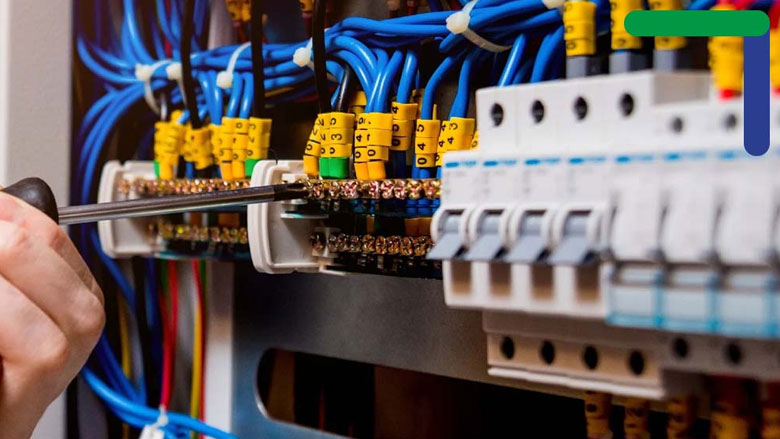B.E. Electrical and Electronics Engineering

B.E. Electrical and Electronics Engineering
About the Department
The Department of Electrical and Electronics Engineering (EEE) at Surya Engineering College (SEC) is dedicated to producing skilled engineers capable of contributing to the dynamic fields of electrical systems, electronics, and automation. The department is backed by an experienced team of faculty, well-equipped laboratories, and a strong emphasis on practical and project-based learning. Through a blend of fundamental concepts, innovative practices, and industry-oriented training, the department nurtures future engineers to meet the evolving demands of the global energy and technology sectors.
About the Course
The Bachelor of Engineering (B.E.) in Electrical and Electronics Engineering is a four-year undergraduate program that focuses on the principles and applications of electricity, electronics, and electromagnetism. It covers the generation, transmission, distribution, and utilization of electrical energy as well as the development of electronic devices, control systems, and automation solutions. The course prepares students to work in core industries like power generation, renewable energy, electrical manufacturing, and smart grid technologies.
To be a center of excellence in Electrical and Electronics Engineering education and research, producing globally competent engineers who drive innovation, sustainable development, and technological leadership.
About the Curriculum
The B.E. Electrical and Electronics Engineering curriculum is designed to provide comprehensive coverage of both traditional and modern topics:
- Electrical Machines and Power Systems
- Circuit Theory and Electronic Devices
- Control Systems Engineering and Instrumentation
- Power Electronics and Drives
- Renewable Energy Systems (Solar, Wind, and Biomass Technologies)
- Microprocessors and Microcontrollers
- High Voltage Engineering
- Smart Grid and Smart Energy Systems
- Industrial Automation and Robotics
- Internet of Things (IoT) Applications in Electrical Engineering
- Embedded Systems and Energy Management
- Capstone Projects, Industrial Visits, and Internship Training
Students are encouraged to participate in national-level projects, technical competitions, and industry certification programs in emerging areas.
Eligibility Criteria
- Candidates must have completed 10+2 / Higher Secondary Education with Physics, Chemistry, and Mathematics as core subjects.
- Admission is based on merit through TNEA counseling or through the management quota, as per Anna University and AICTE norms.
- Students must meet the minimum prescribed aggregate marks as required by regulatory bodies.
Career Opportunities
Graduates of B.E. Electrical and Electronics Engineering have diverse and dynamic career opportunities in both core industries and emerging sectors:
- Power Systems Engineer: Designing and managing electrical power generation and distribution systems.
- Electrical Design Engineer: Developing blueprints for electrical equipment, facilities, and systems.
- Automation and Control Engineer: Working in industrial automation, robotics, and smart manufacturing.
- Energy Systems Engineer: Focusing on renewable energy generation, smart grids, and energy conservation technologies.
- Electronics and Embedded Systems Engineer: Designing and developing embedded electronic products.
- Maintenance and Operations Engineer: Ensuring the efficient operation and maintenance of industrial electrical systems.
- Consultant for Energy Efficiency: Advising industries and corporations on sustainable energy practices.
- Research and Development Engineer: Innovating new technologies in electrical energy, electronics, and automation sectors.
- Government Sector Opportunities: Career options in Electricity Boards, Railways, Public Sector Undertakings (PSUs) like NTPC, BHEL, ONGC, ISRO, and DRDO.
- Higher Studies and Specializations: Pursuing M.E./M.Tech in Power Electronics, Renewable Energy, Embedded Systems, or MBA in Energy Management.
With increasing focus on energy efficiency, automation, smart cities, and renewable energy, Electrical and Electronics Engineers are in great demand across India and globally.
At Surya Engineering College, the Department of Electrical and Electronics Engineering inspires students to power the world with innovation, sustainability, and technical excellence.
UG Courses
- B.E. Bio-Medical Engineering
- B.E. Civil Engineering
- B.E. Computer Science & Engineering
- B.E. Electronics & Communication Engineering
- B.E. Electrical & Electronics Engineering
- B.E. Mechanical Engineering
- B.E. CSE (Cyber Security)
- B.E. CSE (AI & Machine Learning)
- B.Tech AI & Data Science
- B.Tech Information Technology

